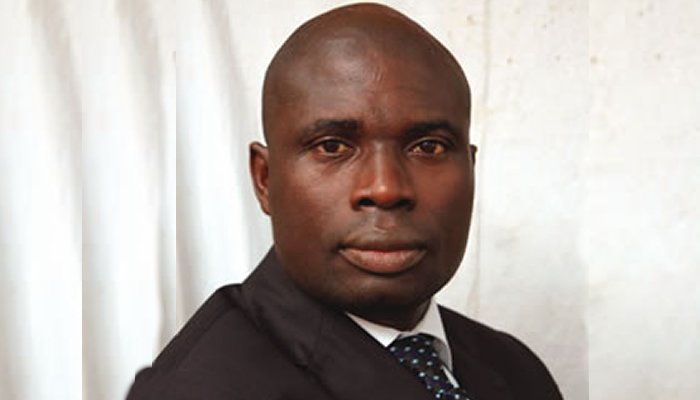
This is not the first time I search the landscape and compare what the component units in Nigeria do and how they do it. I engage in this because I believe there’re things one side can pick from the other. Now, some things are basic in a polity as political scientists know. The output and feedback process of the political system is one of such. So the manner component units pursue an issue and the manner they feed the system back can determine the results they get.
On the occasions when I compared occurrences across the country in the past, I wanted one part to learn from other parts how to also get the best from the polity too. In doing this, “tact” was one word I referenced severally. It’s a word so important in international diplomacy as well as in local politics and traditional institutions. Having spent time in the North-East, North-Central, and North-West, tact among Northerners is one virtue I’ve come to appreciate. When Ndigbo elders visited the State House, and they allowed journalists to publicly announce that they requested the president to free the Indigenous People of Biafra leader, Nnamdi Kanu, the reporter hadn’t stopped talking when I concluded that the approach lacked tact. One, this matter was in court and, two, hawks too could step in and make their opposition to the request known to the president. Everyone else may noise it that Kanu’s release is what Ndigbo want; it’s not for Ndigbo elders to noise such when they visited the president. This kind of request should be whispered, as elders sometimes do, into the ears of the president. In the event, I’m sure the president’s response too would have been whispered back to Ndigbo elders.
Also, I think making such a request should have been the mission of one Ndigbo elder, one elder so respected that the president would feel that, as an elder himself, he should do the Ndigbo elder the honour. The right person was the elder who led the delegation that visited the president; I mean the surviving politician from the First Republic. This elder made the right commitment at that time; he said the president should commit Kanu into his hands and he would take care of the rest. I was touched by such words and I thought that’s how elders talk, the kind of intervention I expect elders to always make in our polity. However, he should have been the only person Ndigbo sent on that mission, maybe assisted by the President of Ohanaeze Ndigbo. That way, the visit would have attracted less publicity, the request whispered, and my assessment is that the president would have been more impressed at the wisdom, the tact so deployed.
Now, it’s among the Yoruba I pick the first illustration in support of this submission. At the time security was a challenge in the South-West, Yoruba elders sat and decided how to approach the matter. I remove the cap on my head and prostrate for my Yoruba elders for the wisdom they deployed in agreeing that only Kabiyesi, the Ooni of Ile-Ife, Oba Adeyeye Enitan Ogunwusi, Ojaja II, needed to go and see the president. For all the culturally symbolic reasons, Kabiyesi was the wise choice for that mission. Mo ki awon agbaagba. Agba o ni tan lori’le. The content of Kabiyesi’s discussion with the president was largely speculated but neither Kabiyesi nor the president’s team publicly announced the details involved.
I wasn’t surprised that the president immediately gave instructions to his service chiefs who then mobilised and held meetings with stakeholders in the South-West. The deployment of Amotekun, which worked with the police, as well as the improved security situation in the South-West, is the prize for all of that tact. I imagine the president appreciated the tact deployed by the Yoruba elders at that time. As a northerner, he should, and I shall dwell on this a bit.
In the years I spent up North during which I regularly sat in long discussions with northerners—traditionalists, politicians, public servants, educationists—I noticed early that they appreciated diplomatic handling of issues in any setting in which they operated. This way, so many difficult issues are handled and settled away from the public glare. This often accounts for how northerners maintain peace in their domains. Tact. I was present at the public presentation of books on the retiring professor of Political Science, R. Ayo Dunmoye, who was once a lecturer at Ahmadu Bello University, Zaria. At the event, the Emir of Zauzzau, His Royal Highness, Ambassador Ahmed Nuhu Bamalli, said although he wasn’t a university professor, at the palace he attended to diverse issues among his subjects. He said he had to handle them in such a high diplomatic manner that university professors of diplomatic studies would do well to come and learn in his palace. That time, I suppose His Highness was talking about tact. That’s an indication of what careful handling of issues among people means to a northerner. So it’s one virtue that the president himself is acquainted with.
Every northerner in a leadership position has to be acquainted with it because they grew up within the culture. They saw the quiet tactful manner their fathers discussed issues. Those from royal houses are even more familiar with this scenario. They grow up discerning what to publicly discuss and what they need to whisper. This was one phenomenon even British colonial officers met in the North and appreciated. In the papers they left behind, of which I have read about 15,000 pages, colonial officers repeatedly showed their admiration for tact. They would praise a traditionalist who successfully handled very difficult political or social issues among the people for his “tact.” Such would often be recommended for promotion or promoted at the next opportunity.
In stating the foregoing, I don’t oppose the need for people to speak out. People can publicly canvass their position on a matter. What I state is that as statesmen or career diplomats would agree, some issues are better handled away from the public glare. Some requests don’t need to be announced until the result is achieved. Northerners do this all the time. They plan, they pursue an issue silently, get what they want from the Federal Government, only for southerners to hear later and then cry foul. As I always state, it’s when the North is silent that it’s most active. Discussions on how to go about every matter are going on when outsiders think nothing is going on in the North. Besides groups and individuals who make loud public demands from time to time, those who actually get things going for the North don’t announce theirs in the public space and they achieve more results considering what we see across the political landscape.
At the time the president was addressing a gathering of Ndigbo in Ebonyi and he announced that the Kanu’s case should be allowed to go through the court process, I thought he responded to Ndigbo in the same manner they approached him. I thought the manner this process played out shouldn’t have been the case, particularly in a matter of this nature. I thought it was made a public plaything and I felt embarrassed. I was embarrassed because our elders were involved; elders shouldn’t request something and fail to get it. But they didn’t get this one because, to me, it wasn’t handled with the needed tact right from the time their request was first made.
Had the approach of Ndigbo elders been different, I imagine the manner the president responded would have been different too. He would have whispered his response, stating the gradual step by step bureaucratic and legal measures he needed to observe first, promising them that in the end, they would have what they requested. This isn’t an impossible request; governments across the world find a way around cases already in court if national interest or national security is at issue.
However, when Ndigbo elders allowed their request to be publicly announced, to me it placed the president in a more difficult position. But I imagine that tomorrow, he’ll find a way to honour their request. For the moment though, it’s been made impossible for him to give a response other than the one he did and the manner he did it.
Concluded..
Copyright PUNCH.
All rights reserved. This material, and other digital content on this website, may not be reproduced, published, broadcast, rewritten or redistributed in whole or in part without prior express written permission from PUNCH.
Contact: [email protected]





